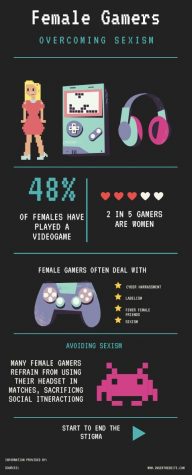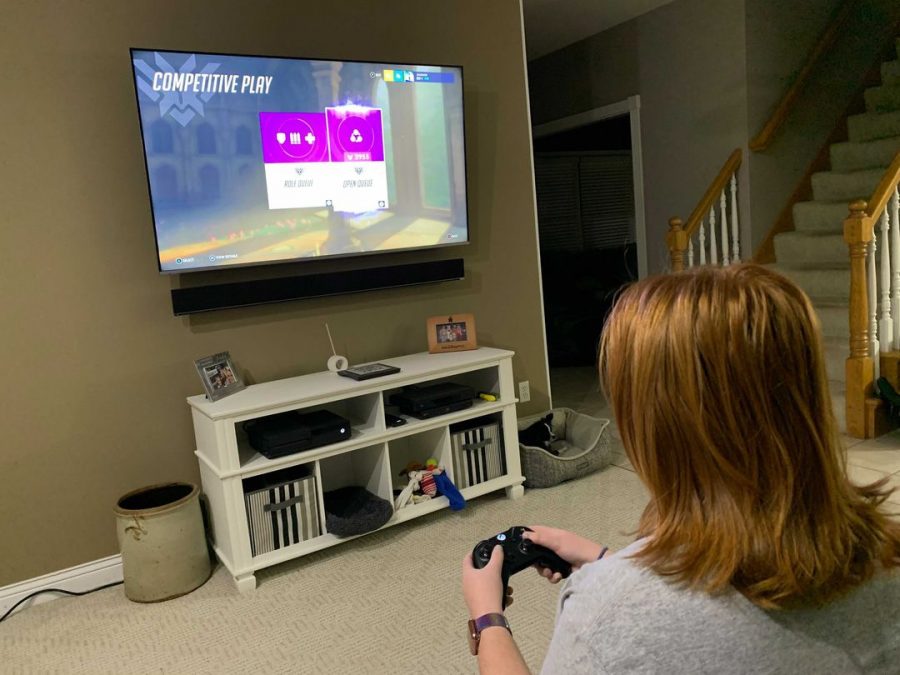As of 2020, women account for 48 percent of the people who have played a video game in the United States, yet only six-seven percent identify as hardcore gamers.
If there is an even gender split between the people that play video games, why do over twice as many males identify as hardcore games? For Senior Madison Brady, and many other female gamers, the answer lies in sexism.
 Brady has grown up in the video game community. “I’ve been playing video games ever since I could remember. I grew up with both of my parents playing World of Warcraft, and them teaching me,” she recalled. A significant portion of her childhood was spent playing games such as Super Mario Bros, Dungeons and Dragons and Pokemon.
Brady has grown up in the video game community. “I’ve been playing video games ever since I could remember. I grew up with both of my parents playing World of Warcraft, and them teaching me,” she recalled. A significant portion of her childhood was spent playing games such as Super Mario Bros, Dungeons and Dragons and Pokemon.
As she has got older, Brady began to drift towards more hardcore games like Overwatch. Her identity as a gamer has had a significant influence on her friend groups growing up. “I’ve always been labeled as a female gamer, and [I] tend to drift towards friend groups full of males, because they were the only ones I could relate to in gaming,” Brady stated.
At a young age, Brady had already begun to feel the influences of sexism within the gaming community. She grew apart from many of her female childhood friends because many of them were under the impression that gaming was a male pastime.
In recent years, sexism has manifested itself online. Brady can recall several instances where she was harassed for being a female gamer. “Usually, it’s the typical ‘oh you’re a girl!’, or sometimes some harassment that I can not play the game well enough because I am a female,” she voiced.
The sexism reached a point where Brady gave herself an ultimatum: either give up doing what she loves or endure the discrimination. Determined to not give in to the online harassment, Brady decided that she would continue playing games. “[Gaming] is a way to escape our current reality and find ourselves in a different one, one where we can be who we want to be, accomplish tasks, and create our own world,” she said.
However, she has had to make adjustments to try and avoid sexist interactions. Brady often refrains from using her headset to talk to people in matches. While she is unable to communicate strategies with her teammates or socialize with other players, she effectively avoids sexist bullying.
Male gamer Owen Jones has had many first-hand encounters with sexism towards female gamers. “Like 95% of all the random people that I’ve met while playing video games have been dudes, but whenever I do end up in a lobby with a girl, it seems like someone always has to call her out just for being a girl,” Jones remarked.
Both Brady and Jones understand the universal appeal of video games, so it deeply saddens them to see men gatekeeping the community. As gaming becomes more mainstream, they hope that the sexist culture of video games gets left behind.










